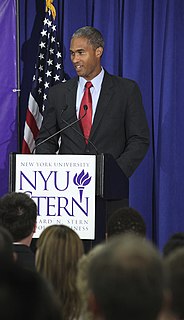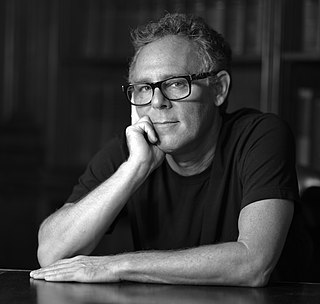A Quote by Tom Robbins
This may be said for the last quarter of the twentieth century: the truism that if we want a better world we will have to be better people came to be acknowledge, if not thoroughly understood, by a significantly large minority.
Related Quotes
Given that the nineteenth century was the century of Socialism, of Liberalism, and of Democracy, it does not necessarily follow that the twentieth century must also be a century of Socialism, Liberalism and Democracy: political doctrines pass, but humanity remains, and it may rather be expected that this will be a century of authority ... a century of Fascism. For if the nineteenth century was a century of individualism it may be expected that this will be the century of collectivism and hence the century of the State.
Between 2001 and 2011, Brazil lifted 20 million people out of poverty and into its growing middle class, and in the last quarter of the twentieth century Botswana's gross domestic product per capita grew faster than that of any other country on the planet. The once-labeled 'Third World' is edging its way into the 'First World.'
Humanity cannot afford to muddle through the rest of the twentieth century; the risks are too great, and the stakes are too high. This may be the last opportunity to choose our own and our descendants’ destiny. Failing to choose or making the wrong choices may lead to catastrophe. But it must never be forgotten that the right choices could lead to a much better world.
So that's one of the reasons why we took time between the last one and this one, was to make sure that we could do something that we believe could be equal if not better than the last one. In this case we already have ideas of things we're talking about, and I think in a perfect world it will not be a four year break and it will come out significantly sooner than the last.
In the last quarter of the 20th century, Britons have been understandably obsessed with the problem of having too little power in the world. In the third quarter of the 18th century, by contrast, their forebears were perplexed by the problem of having acquired too much power too quickly over too many people.
In some century to come, when the school children will whistle popular tunes in quarter-tones--when the diatonic scale will be as obsolete as the pentatonic is now--perhaps then these borderland experiences may be both easily expressed and readily recognized. But maybe music was not intended to satisfy the curious definiteness of man. Maybe it is better to hope that music may always be transcendental language in the most extravagant sense
I think basketball has changed tremendously and for the better. I think that obviously the game is better. I think the skill of the players are better, the strength, the overall athleticism, the teamwork involved. I think coaching is better. We have more exposure for our game than ever. You know, our sport has grown significantly in really the last five years. It's pretty amazing.







































